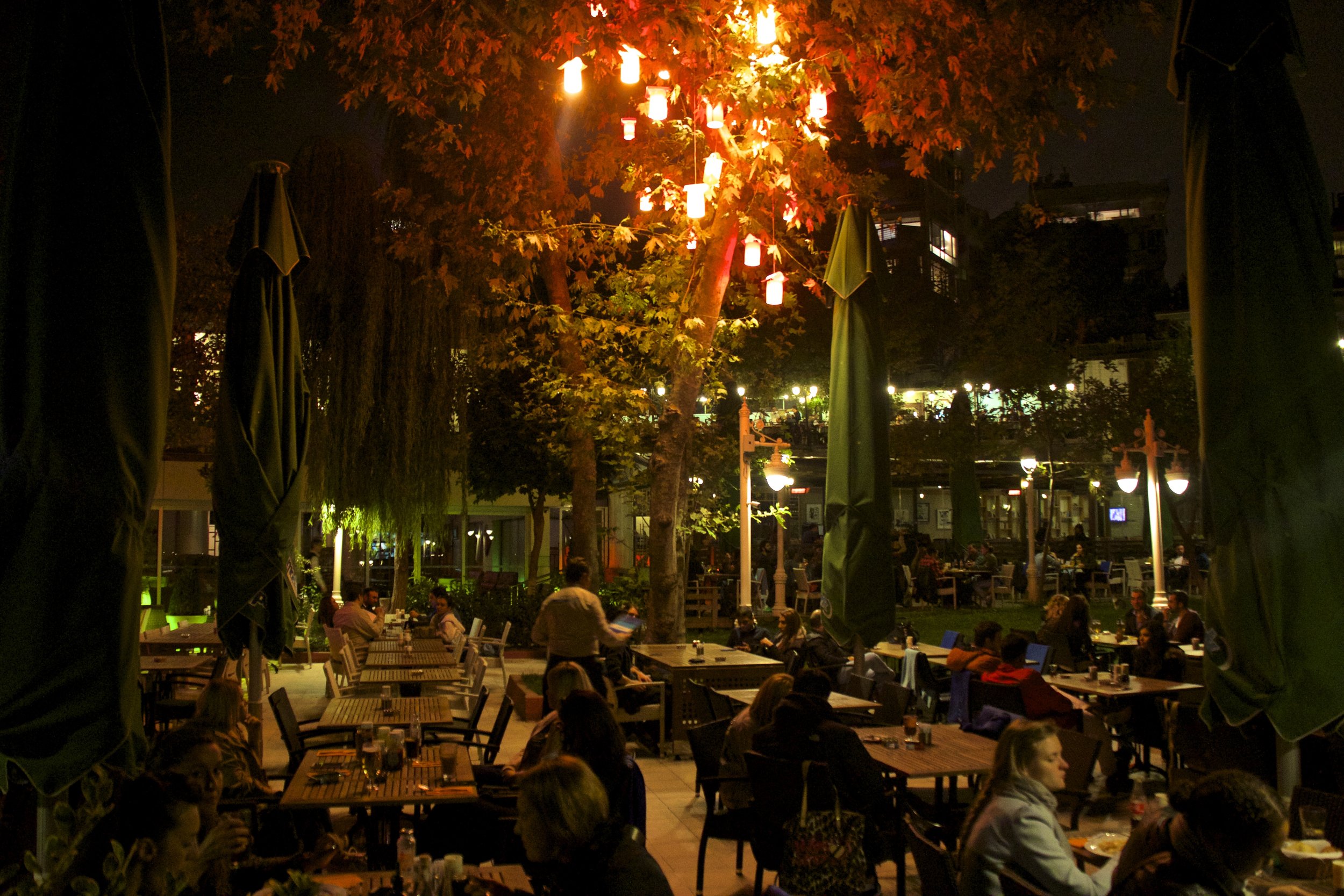Turkey is an Islamic country, so I did not arrive with any expectations of heavy drinking. The consumption of alcohol is strictly forbidden in Islamic culture. Turkey however is a bit of an anomaly in the Muslim world, so I wasn’t sure what to expect. Indeed, Turkey exists in the uncomfortable limbo between Europe, and the Middle East. With Iraq, Syria, and ISIS on one side, and Greece and Bulgaria on the other, worlds literally collide in Turkey. Nowhere is this collision more obvious than in Istanbul. Straddling the banks of the Bosporus means that Istanbul is literally half in Asia, and half in Europe.
After such a long time slogging through the developing world, I was ready for a few drinks. Alcohol was a bit more frowned upon than I had expected, but thanks to Mr. Otan, I got filled in on Turkish drinking culture. (Thanks again Otan!)
He took me out in Kadıköy to bustling Güneşli Bahçe Street. This is a big street for local nightlife. You won’t find many westerners here, but you will have a good time. We went to a restaurant that served a drink called Raki (pronounced “rekka”). This is the authentic Turkish liquor. He explained to me that Raki is typically consumed when people need to discuss serious matters, like the death of a relative. The standard foods that are eaten in conjunction with Raki are melons, fish, and cheese.
Raki comes in a small liquor bottle, much the same as an Vodka you might buy in America, but you do not drink it straight. Raki is mixed with water, which turned it milky white almost instantly. The ratio of Raki to water is typically one to one, but if that is too strong there is nothing preventing you from watering it down further. Raki tastes and smells very strongly like black licorice, so if you don’t like black licorice, don’t bother. Personally, I love it! Raki tastes like Good ‘N Plenty. Does anybody else remember that candy?
The Rules Of Raki
There is an etiquette to drinking Raki that is important to note. When you make a toast, you need to consider your relationship with the person whose glass you are about to “clink”.
If this is a person who you consider to be “above” you in life, like your father, or your boss for example, when you toast you “clink” your glass lower than theirs.
- If you think that you are on an equal level with this person, then your glasses should be level with one another, as is normal.
- If the person you are drinking with is below you, a student, child, or employee for example, then your glass should be higher than theirs when you toast. However, it is up to them to lower their glass as a sign of respect. You should never make your glass higher than somebody else’s. You go in for the toast as if you are equals, and the other person should lower their glass on their own, as a sign of respect.
We are equals
He is below me / I am above him
We clinked our glasses, drank our Raki, and ate cheese with melon. However, our conversation I found to be pretty uplifting, so we broke the rules there. Don’t tell anybody.






